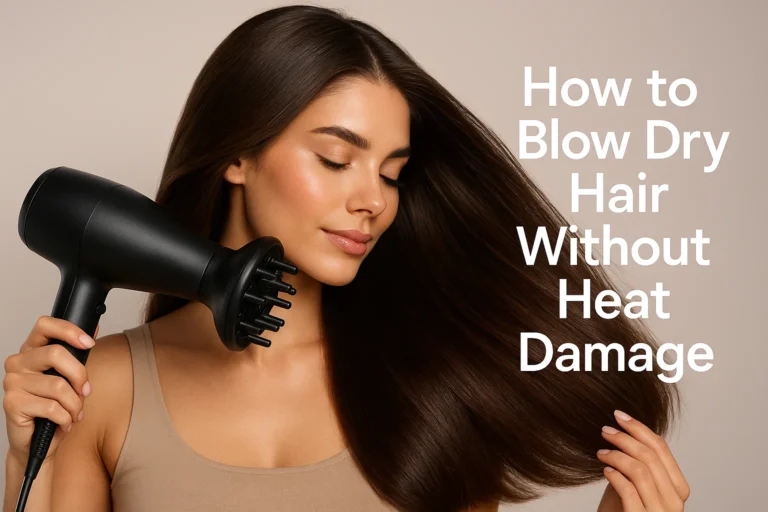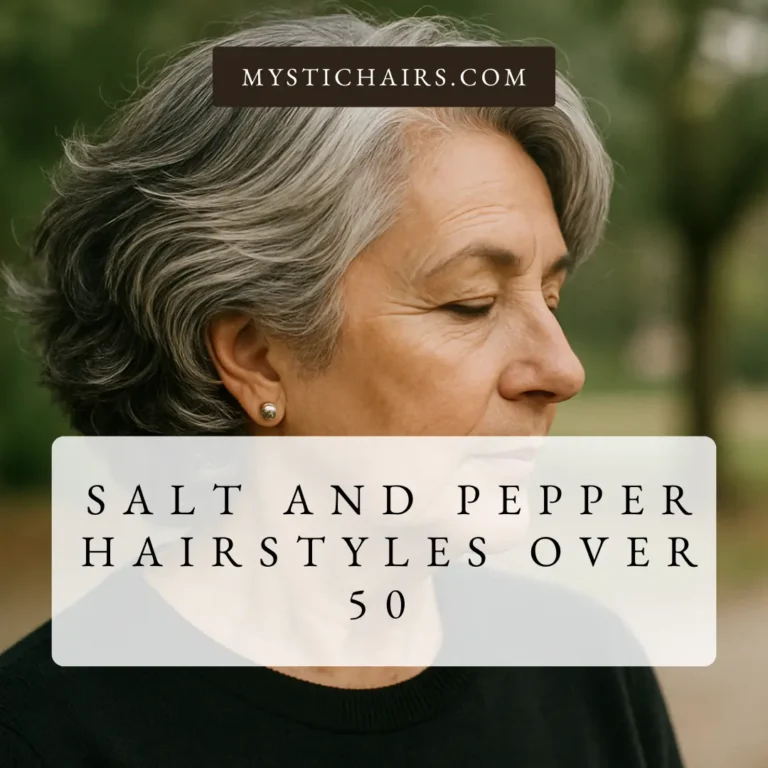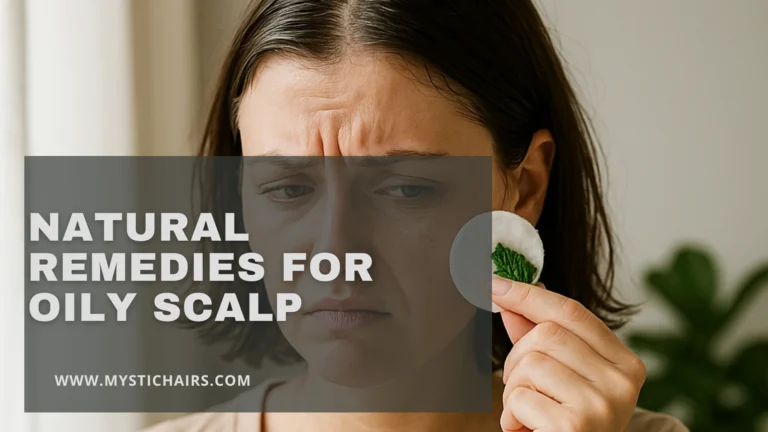Dry Scalp During Winter: 10 Top Remedies and 10 Prevention Tips
Experiencing a dry scalp during winter is a common issue caused by cold winds, low humidity, and indoor heating, which strip your scalp of natural oils. This can lead to itchiness, flakiness, and even hair that looks dull and lifeless. Many people struggle with persistent dryness and wonder how to restore their scalp’s natural moisture during the colder months. The good news is that there are simple and effective remedies that can help soothe irritation, nourish your scalp, and prevent further dryness.
Here are 10 top remedies for dry scalp during winter that will help restore hydration, calm itchiness, and keep your hair looking healthy.
10 Top Remedies for Dry Scalp During Winter
1. Use a Moisturizing Shampoo
A moisturizing shampoo specifically formulated for dry scalp during winter can make a huge difference. Sulfate-free formulas are ideal because they clean the hair without stripping away essential oils. Look for shampoos with natural humectants like glycerin or aloe vera that attract moisture to the scalp. Regular use helps maintain a soft, hydrated scalp, reduces flakiness, and leaves your hair feeling smooth and manageable. This is one of the simplest steps to restore a healthy scalp routine in winter.
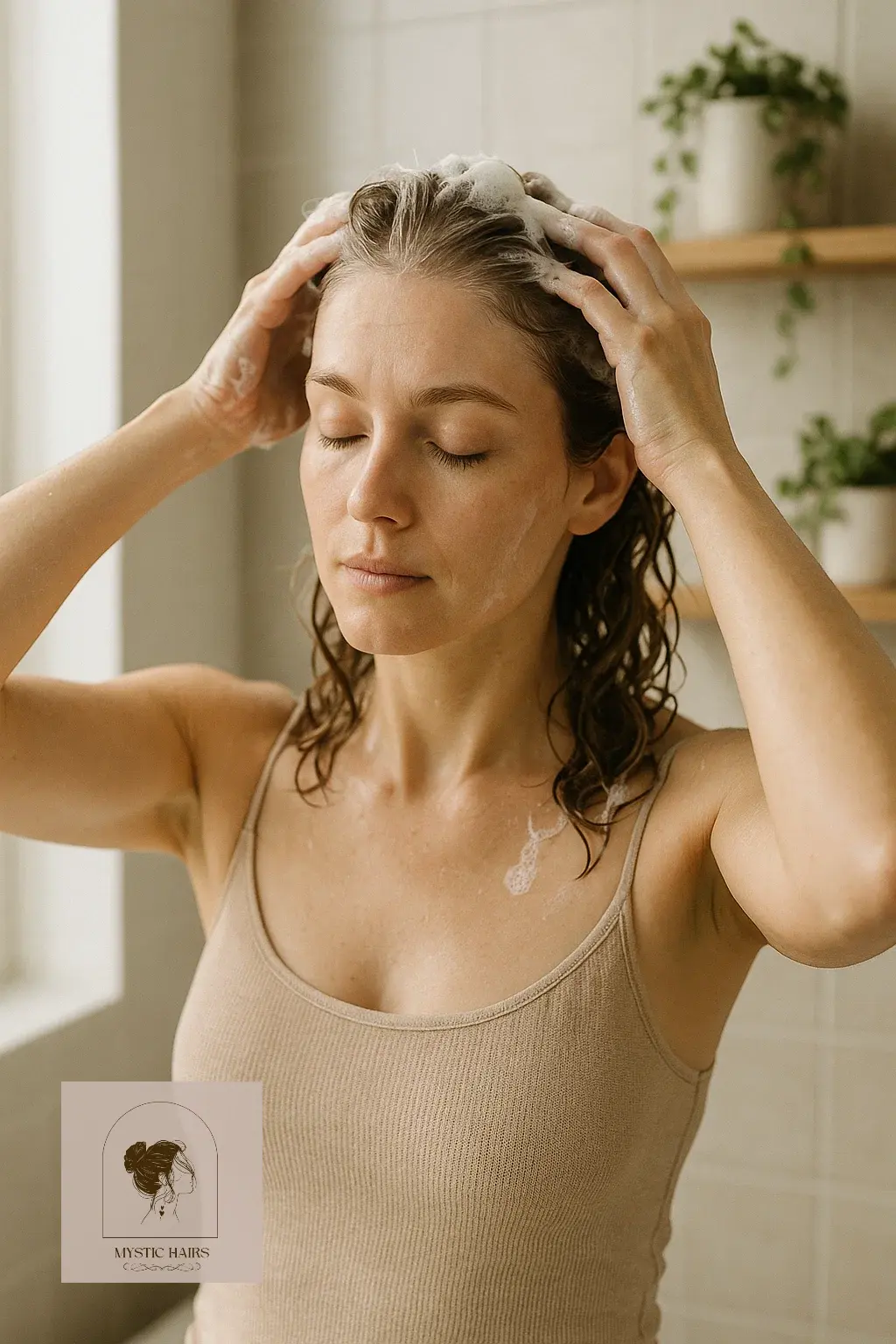
2. Apply a Deep Conditioning Mask
A deep conditioning mask is a must-have for winter scalp care. Using a mask once a week infuses hair and scalp with rich moisture, repairing damage caused by dry air and heating. Ingredients like shea butter, argan oil, or coconut oil penetrate deep into the hair shaft while soothing the scalp. This treatment not only improves softness and shine but also reduces irritation and prevents future dryness. For best results, leave the mask on for 20–30 minutes before rinsing with lukewarm water.
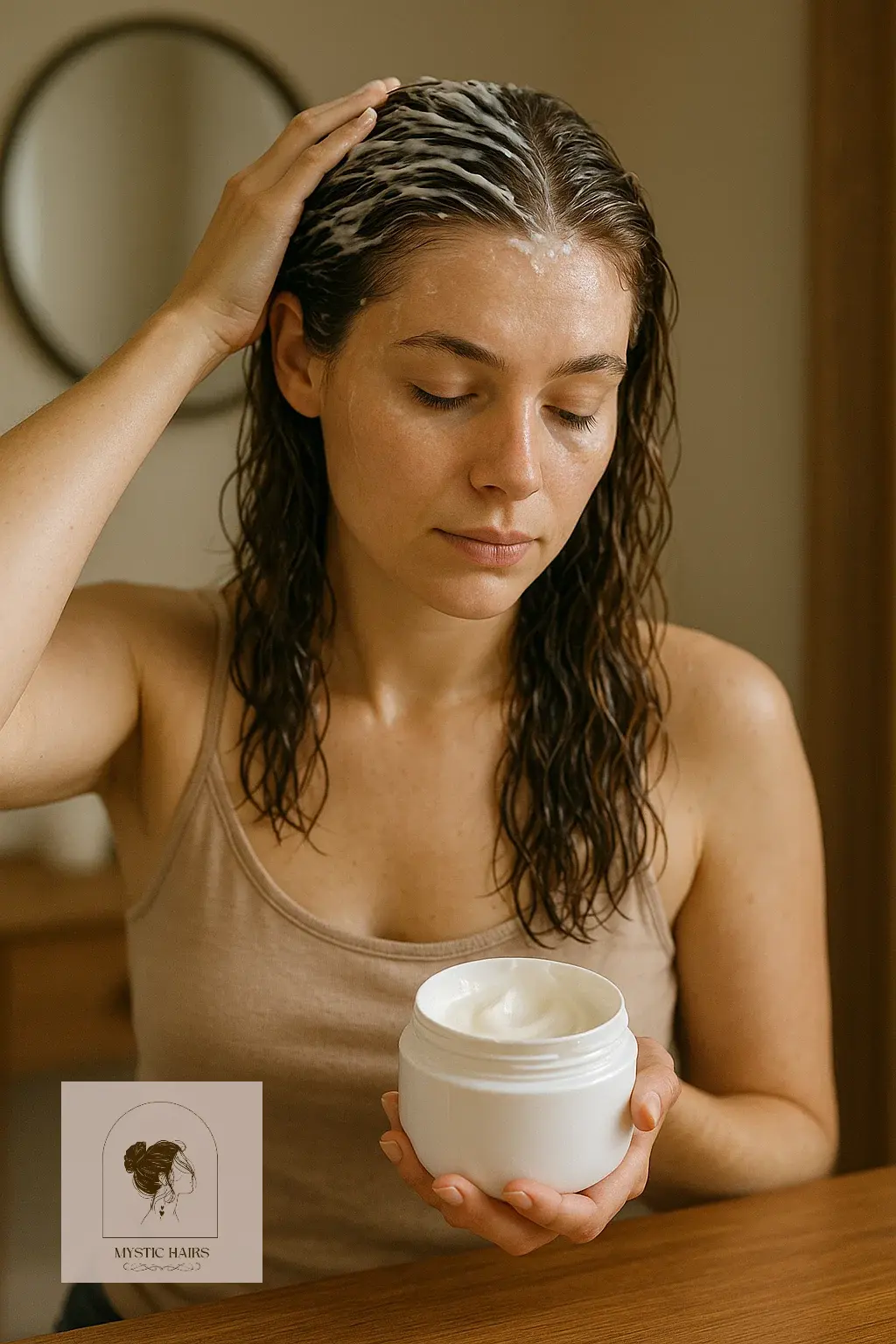
3. Massage With Natural Oils
Scalp massages with natural oils are a powerful remedy for itchy scalp and dry scalp during winter. Oils such as coconut, jojoba, or olive oil provide deep hydration and help restore the scalp’s natural lipid barrier. Gently massaging the oil into your scalp also stimulates blood circulation, which can improve hair growth and overall scalp health. For maximum benefit, leave the oil on for at least 30 minutes or overnight, then wash it out with a gentle shampoo.
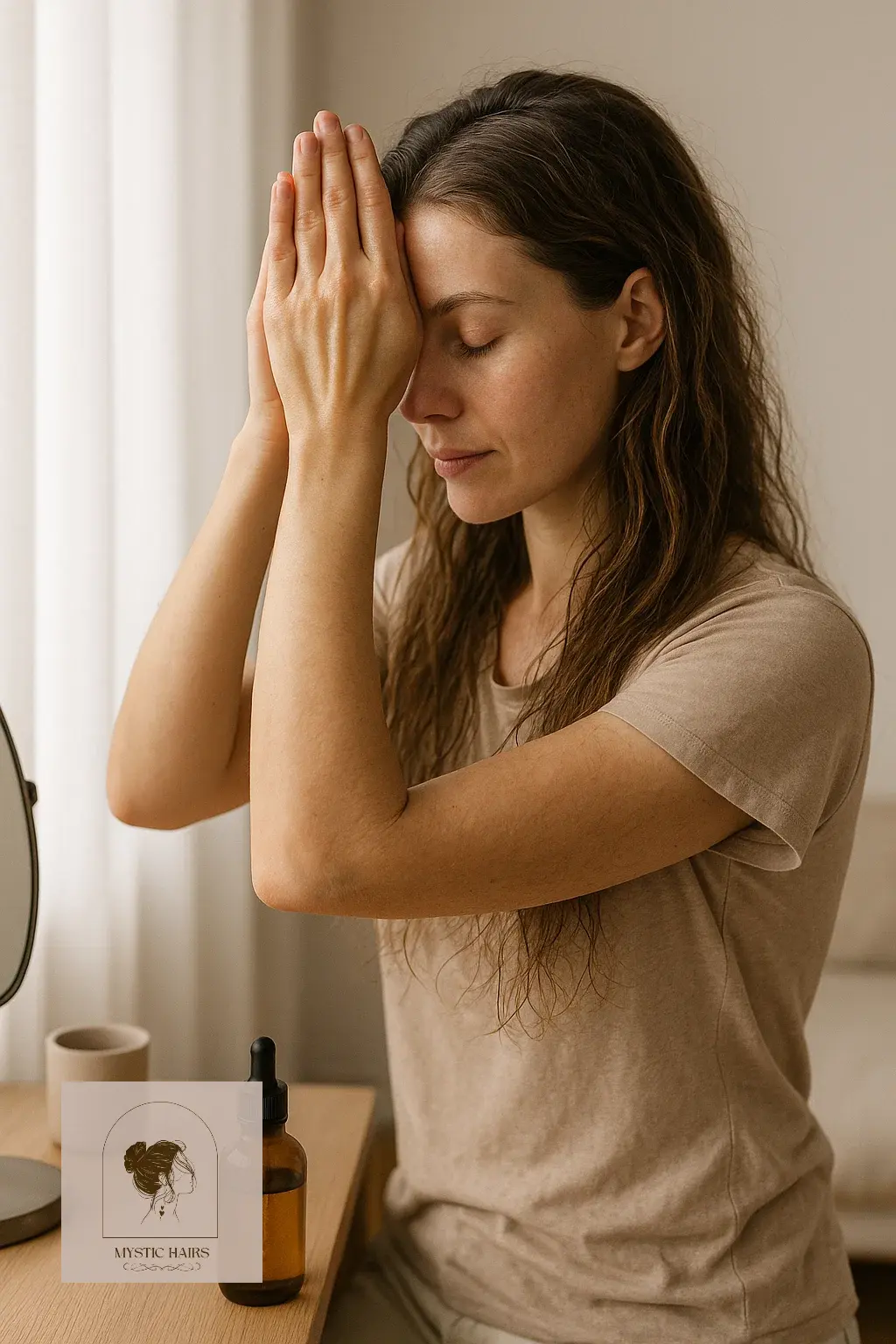
Cold weather can strip away moisture, and post-wash care is crucial. Discover what to do with hair after washing to lock in hydration and keep your scalp comfortable in winter.
4. Aloe Vera Treatment
Aloe vera is a natural hydrator and anti-inflammatory agent, making it ideal for soothing a dry scalp during winter. Apply fresh aloe gel directly to your scalp and leave it on for 15–20 minutes before rinsing. Its cooling properties calm itchiness, reduce flakiness, and restore moisture balance. Aloe vera also strengthens the scalp’s barrier function, which helps prevent further dryness and supports a healthy scalp routine throughout the season.
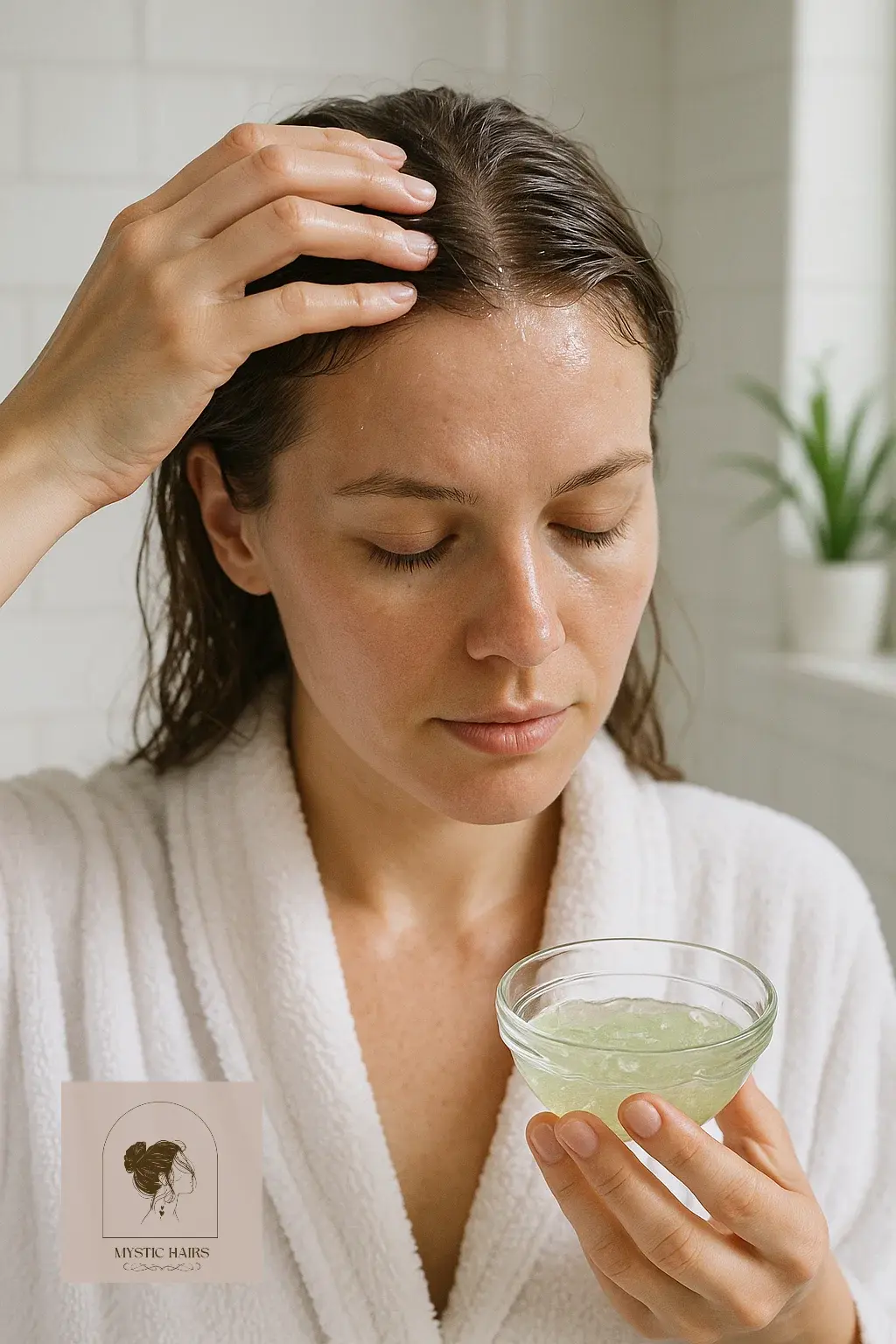
5. Honey and Yogurt Mask
A combination of honey and yogurt works wonders for winter scalp care. Honey is a natural humectant that attracts and retains moisture, while yogurt contains probiotics that balance the scalp environment. Mixing these ingredients into a mask and applying them to the scalp helps hydrate, soften, and gently exfoliate dead skin. Leaving the mask on for 15–20 minutes before washing it off restores scalp hydration and reduces the appearance of flakes, giving your hair a healthier, shinier look.

6. Avoid Hot Water
Hot water can strip natural oils from your scalp, worsening dryness and irritation. To protect your scalp in winter, wash your hair with lukewarm water. Lukewarm water cleanses effectively without removing essential moisture, leaving your scalp soft and hydrated. Pair this with a moisturizing shampoo and conditioner to maximize the benefits and prevent flaky scalp issues. This simple adjustment in your winter hair care routine can significantly improve scalp comfort.
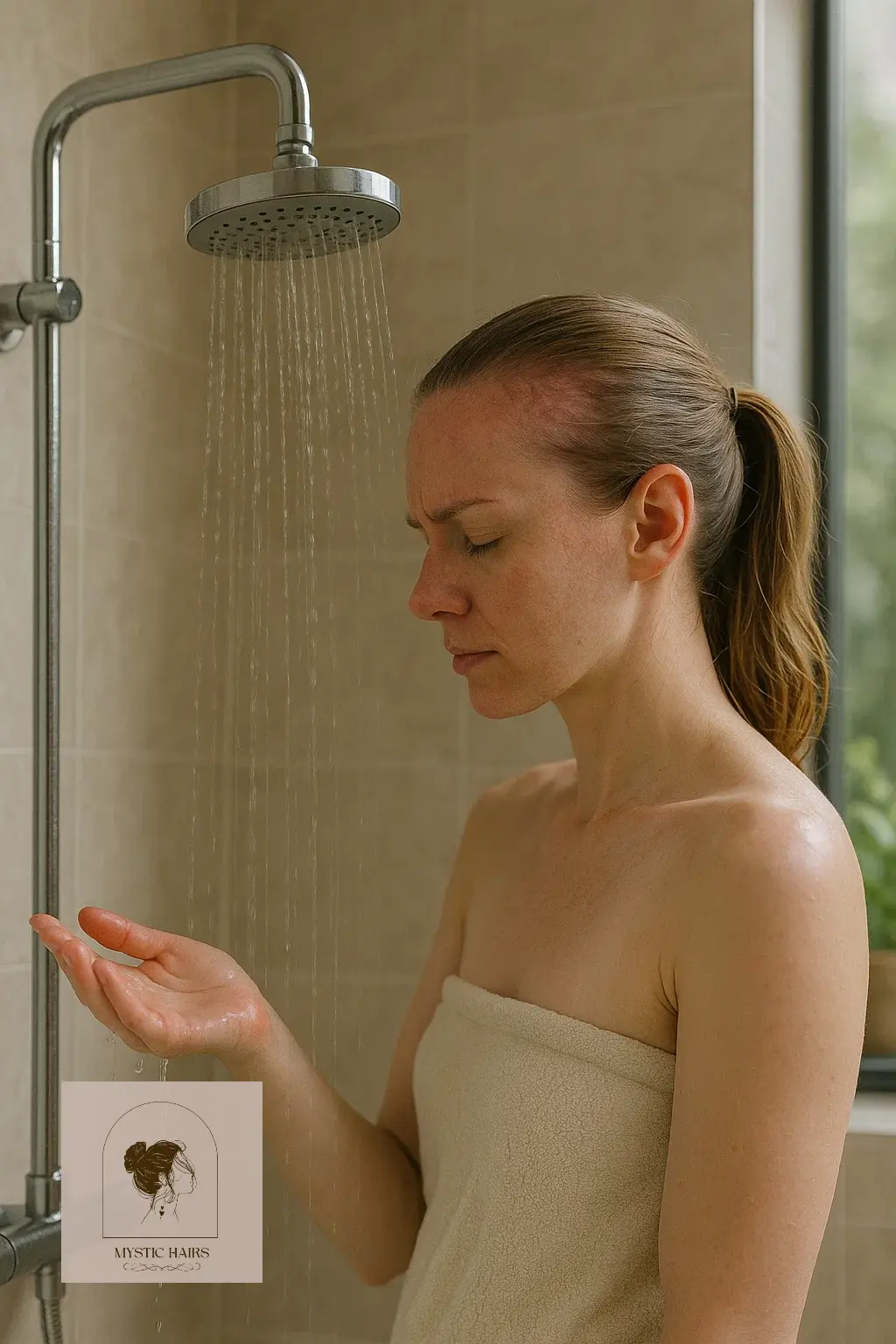
Seasonal dryness can affect both scalp and color-treated hair. Knowing how to fix orange hair after bleaching at home helps maintain a healthy balance between tone and moisture.
7. Use a Humidifier
Indoor heating systems dry out the air, which can lead to a dry scalp during winter. Using a humidifier in your bedroom or living space adds moisture back into the air, preventing your scalp from becoming parched. Maintaining a moderate humidity level helps keep hair soft, reduces itching, and limits flakiness. It also protects your strands from static, making your winter hair care routine more effective overall.

8. Tea Tree Oil for Itchy Scalp
Tea tree oil is a natural antifungal and antibacterial treatment, perfect for a dry, itchy scalp during winter. Adding a few drops to your shampoo or mixing it with a carrier oil before applying to the scalp can reduce inflammation, calm irritation, and prevent dryness-related flakiness. Regular use strengthens the scalp’s natural defense and keeps it balanced, supporting healthy hair growth and preventing recurring scalp issues.
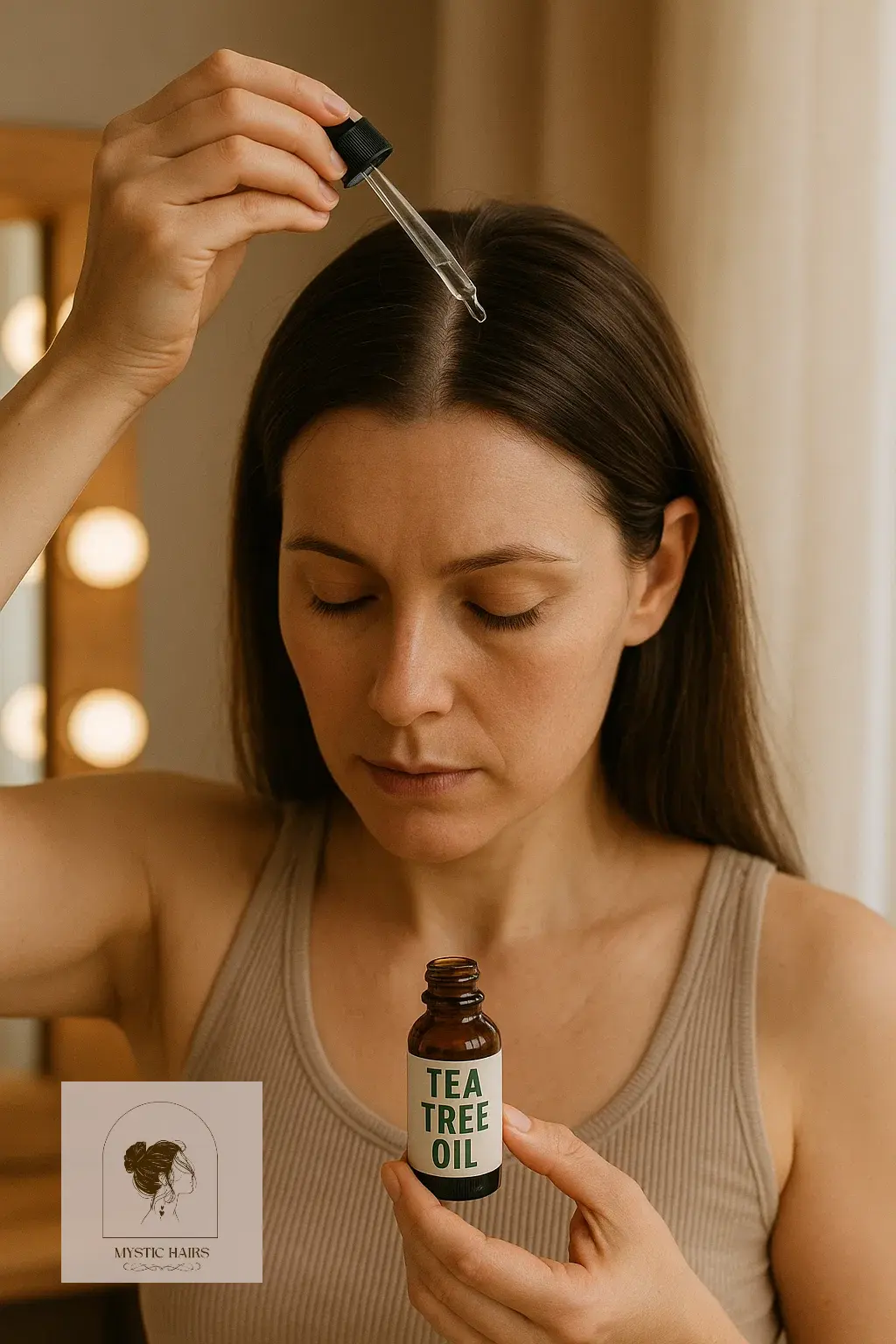
9. Oatmeal Scalp Soothing Mask
Oatmeal is excellent for sensitive and dry scalps. Ground oatmeal mixed with water or yogurt can be applied as a soothing mask to calm irritation and provide deep moisture. Leaving it on for 15–20 minutes allows it to gently exfoliate dead skin and restore hydration. This natural remedy is safe, effective, and helps maintain a healthy scalp routine during harsh winter months.
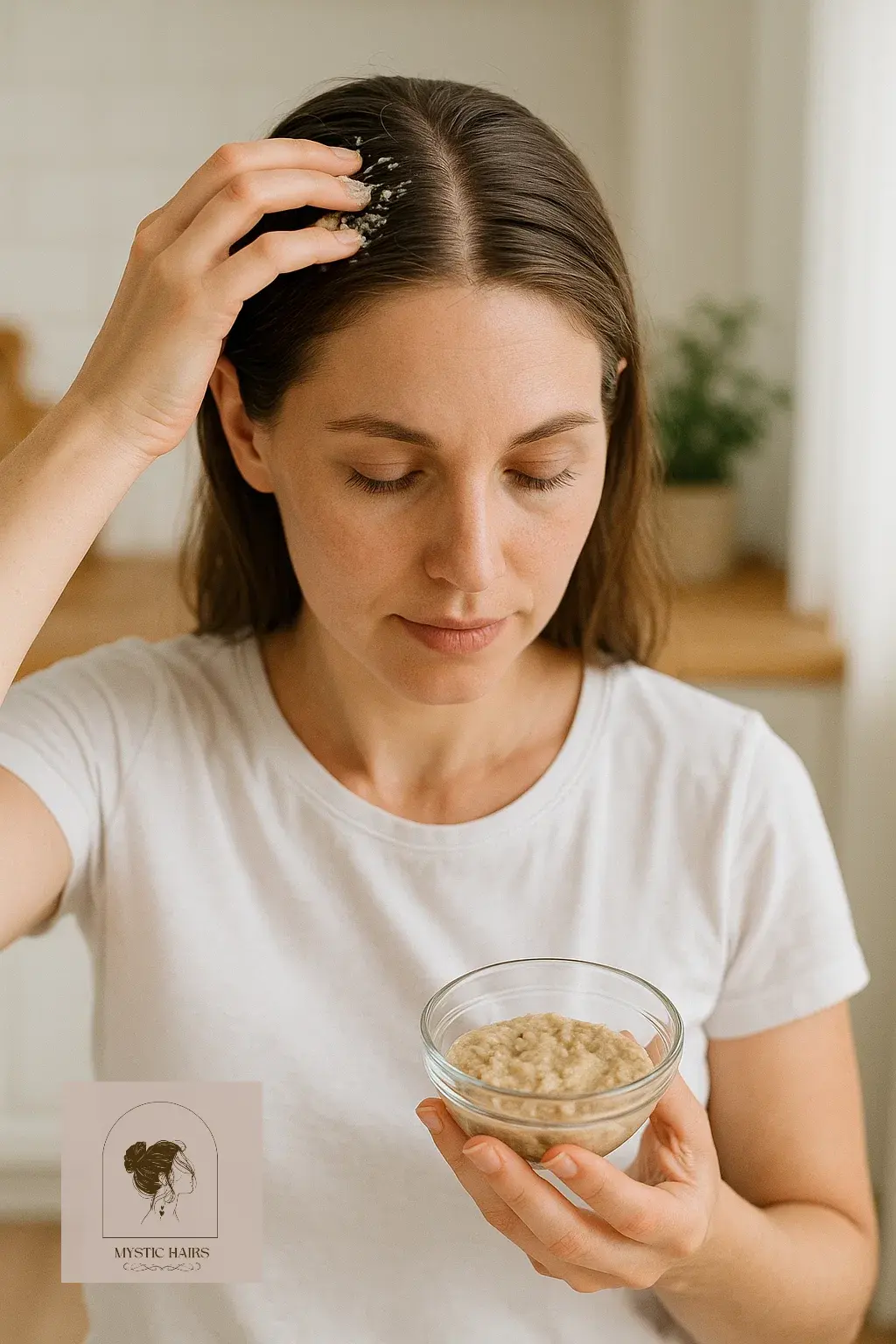
10. Apple Cider Vinegar Rinse
Apple cider vinegar balances the scalp’s pH and removes residue that can worsen dryness. Dilute one to two tablespoons with water and pour it over your scalp after shampooing. This rinse helps eliminate flakes, restores natural scalp hydration, and enhances overall scalp health. It’s an inexpensive, natural remedy that complements any winter hair care routine and promotes long-term hair vitality.
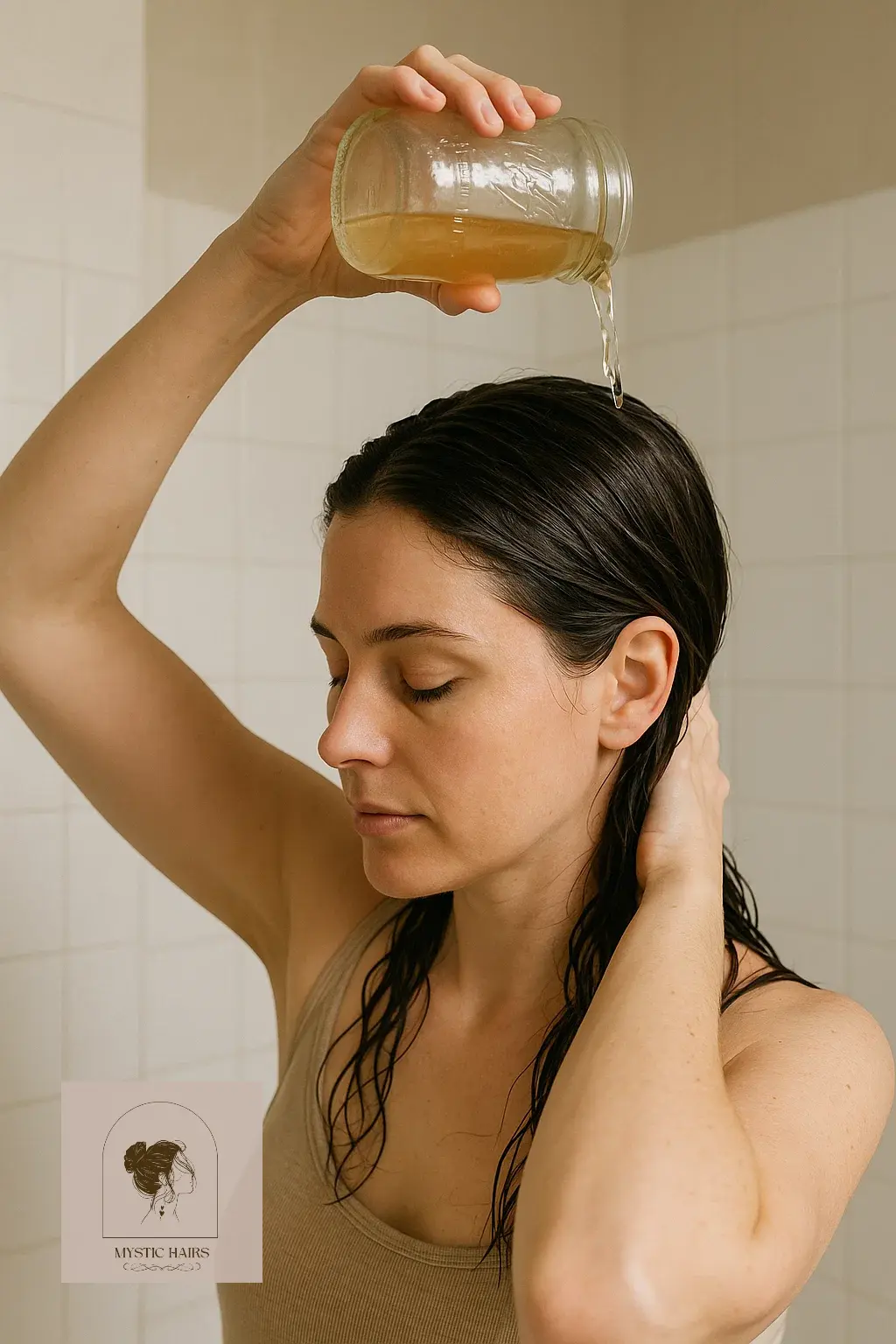
Static and dryness often make baby hairs harder to manage in colder months. Learn how to control baby hairs with gentle methods that reduce frizz and protect the scalp.
10 Prevention Tips for Dry Scalp During Winter
1. Limit Frequent Hair Washing
Over-washing strips the scalp of natural oils, worsening dry scalp during winter. Wash your hair 2–3 times a week using a gentle, moisturizing shampoo. This prevents excessive dryness while still removing dirt and buildup. Pairing this with a conditioner for your hair type helps maintain moisture and soft, hydrated strands.
2. Use Sulfate-Free Shampoos
Sulfates can aggressively strip oils from your scalp, leaving it flaky and itchy. Switching to a sulfate-free shampoo helps retain natural moisture, reduce irritation, and support a healthy scalp. Look for products enriched with aloe vera, glycerin, or natural oils to combat winter dryness.
3. Condition Properly Every Wash
Conditioning is essential to prevent dryness. Apply conditioner mainly to mid-lengths and ends, avoiding the roots to prevent buildup. For dry scalp during winter, choose hydrating formulas with shea butter, argan oil, or panthenol. This ensures hair remains soft, smooth, and more manageable throughout the season.
4. Protect Hair from Hot Air and Heat Styling
Frequent blow-drying or heat styling can exacerbate dryness and make a flaky scalp worse. Use a heat protectant before styling and avoid excessive heat. Air-drying when possible, or using lower heat settings, preserves natural oils and maintains scalp hydration, preventing winter dryness.
5. Wear Protective Headgear
Cold wind and dry air can strip moisture from the scalp. Wearing a hat or scarf when outdoors shields your scalp from harsh winter elements, reducing dry scalp during winter and preventing flakiness. Choose breathable fabrics to avoid excessive sweating or irritation under the hat.
6. Maintain a Healthy Diet
A diet rich in omega-3 fatty acids, vitamins A, C, and E, zinc, and protein supports scalp health. Foods like salmon, walnuts, spinach, and eggs help nourish hair from the inside, promoting hydration and natural scalp moisture during winter. Proper nutrition complements topical treatments for long-lasting results.
7. Stay Hydrated
Drinking enough water is critical for overall health and healthy scalp routine. Dehydration can make the scalp dry and flaky, especially in winter months. Aim for at least 6–8 glasses of water daily and consider hydrating teas or broths to maintain moisture balance.
8. Use a Humidifier Indoors
Indoor heating often dries out the air, aggravating dry scalp during winter. Using a humidifier in your bedroom or living areas adds moisture back into the air, keeping your scalp and hair hydrated, soft, and less prone to irritation or flakiness.
9. Avoid Harsh Hair Products
Hair sprays, gels, and alcohol-based products can further dry your scalp. Opt for gentle, natural styling products that are free from sulfates, alcohol, and harsh chemicals. This helps maintain scalp hydration and prevents winter dryness from worsening.
10. Regularly Trim Hair
Split ends and damaged hair can worsen scalp dryness by causing frizz and uneven moisture distribution. Regular trims every 6–8 weeks promote healthier, shinier hair and complement your winter hair care routine, keeping both scalp and hair in optimal condition.
Bonus Tips for Winter Scalp Care
- Apply a light hair serum or leave-in oil to ends to lock in moisture.
- Gently massage scalp for 5–10 minutes daily to stimulate blood flow.
- Sleep on silk pillowcases to reduce friction and retain natural oils.
- Avoid excessive scratching, which can irritate a dry scalp and cause inflammation.
- Incorporate weekly natural treatments, like aloe vera or honey masks, for extra hydration and soothing.
Conclusion
A dry scalp during winter can be uncomfortable and lead to itchy, flaky hair if not addressed. By combining proper hair washing, deep conditioning, natural remedies, and preventive measures, you can restore moisture and maintain a healthy scalp throughout the season. A consistent winter hair care routine, including diet, hydration, and scalp protection, ensures soft, nourished, and healthy hair. With these remedies and prevention tips, your scalp will remain comfortable, hydrated, and flake-free all winter long.

Aria Blake is a beauty writer and hairstyle curator passionate about empowering women through timeless trends and modern haircare. With a deep love for natural textures and creative styling, Aria blends expert tips with real-life inspiration to help you look and feel your best—every single day. When she’s not writing for MysticHairs.com, you’ll find her exploring protective styles, sipping herbal tea, or pinning dreamy looks for your next hair glow-up.

